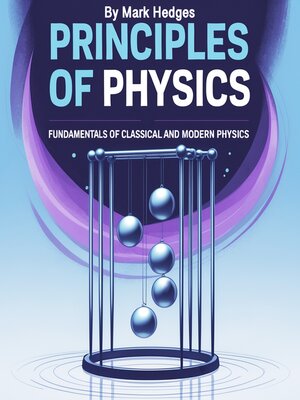Principles of Physics
audiobook (Unabridged) ∣ Fundamentals of Classical and Modern Physics
By Mark Hedges

Sign up to save your library
With an OverDrive account, you can save your favorite libraries for at-a-glance information about availability. Find out more about OverDrive accounts.
Find this title in Libby, the library reading app by OverDrive.



Search for a digital library with this title
Title found at these libraries:
| Library Name | Distance |
|---|---|
| Loading... |
Physics is the branch of science that seeks to understand the fundamental principles governing the universe. It explores the nature of matter, energy, space, and time, and investigates the forces and interactions that shape the behavior of physical systems. Physics provides the foundation for understanding natural phenomena, from the motion of celestial bodies to the behavior of subatomic particles. It is both a theoretical and experimental science, combining mathematical models with empirical observations to describe and predict physical behavior.
The origins of physics can be traced back to ancient Greece, where philosophers such as Aristotle and Democritus speculated about the nature of matter and motion. However, modern physics began to take shape during the Scientific Revolution in the 16th and 17th centuries with the work of Galileo Galilei, Johannes Kepler, and Sir Isaac Newton. Galileo introduced the concept of systematic experimentation and mathematical analysis, while Kepler's laws of planetary motion provided empirical support for the heliocentric model of the solar system. Newton's formulation of the laws of motion and universal gravitation established a comprehensive framework for understanding the mechanics of bodies in motion.
Physics is traditionally divided into classical and modern physics. Classical physics encompasses theories developed before the 20th century, including Newtonian mechanics, thermodynamics, and classical electromagnetism. Newtonian mechanics describes the motion of macroscopic objects using concepts such as force, mass, and acceleration. Thermodynamics studies the relationships between heat, work, and energy, while classical electromagnetism, formulated by James Clerk Maxwell, explains the behavior of electric and magnetic fields and their interactions with charged particles.







